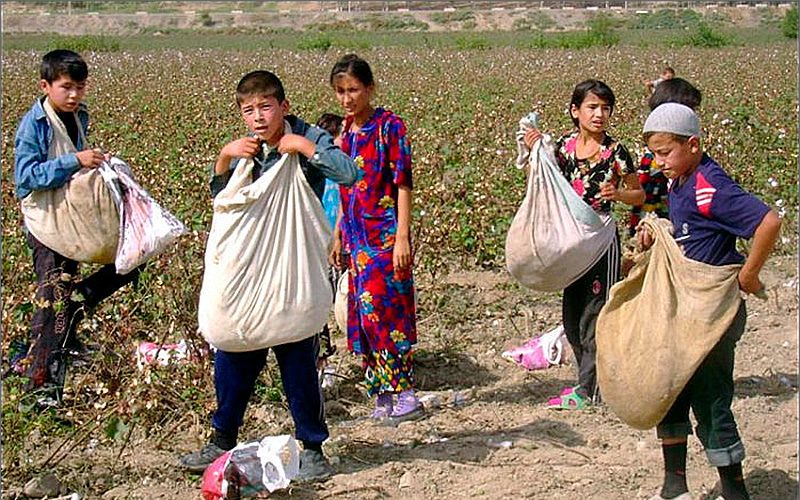"Uzbekistan has made remarkable strides in protecting human rights," UN Secretary-General
Uzbekistan has made remarkable strides in the field of human rights, earning recognition from UN Secretary-General Antonio Guterres.
@UN Secretary General @antonioguterresto the @president_uz of Uzbekistan:
— Daryo | Central Asia & Afghanistan (@DaryoEng) July 1, 2024
"I admit that the reforms you started are aimed at providing the bright perspective that the people of Uzbekistan deserve."#Leadership #Reforms #Uzbekistan #UN #AntonioGuterres #ShavkatMirziyoyev… pic.twitter.com/kQWRtRjKoS
At the invitation of President Shavkat Mirziyoyev, UN Secretary-General visited Uzbekistan on June 30, where he was received by Prime Minister Abdulla Aripov and other officials. On July 1, President Mirziyoyev hosted Guterres at the Kuksaroy residence in Uzbekistan.
#Uzbekistan and @UN agree on #sustainable #development goals for 2026–2030
— Daryo | Central Asia & Afghanistan (@DaryoEng) July 1, 2024
In recent years, 10 special resolutions of the #UNGeneralAssembly have been adopted on the #initiative of Uzbekistan.
👉Details — https://t.co/4kZA1gDT3D#Uzbekistan #UN #sustainabledevelopment… pic.twitter.com/w0OghiNNav
Guterres commended the country for its achievements, particularly in the elimination of forced labor in cotton fields, the provision of citizenship to stateless individuals, and the reintegration of women and children from conflict zones like Syria. UN Secretary-General highlighted saying:
"Uzbekistan has made remarkable strides in protecting human rights. The visit of the UN High Commissioner for Human Rights to your country last year is a testament to this progress. I am optimistic that our collaboration in this critical area will continue to thrive. The elimination of forced labor in cotton fields, granting citizenship to stateless individuals, and the return and reintegration of women and children from camps in Syria and other regions are commendable achievements. These initiatives can serve as exemplary models for other countries."
In September 2020, Uzbekistan implemented amendments to the Citizenship Law, initially passed on March 13, 2020. Following the Soviet Union's collapse in 1991, many ethnic Uzbeks and other residents returned to Uzbekistan with Soviet passports. Under the 1992 Citizenship Law, those who had not registered before July 28, 1992, became stateless. By 2019, there were 95,857 stateless persons in Uzbekistan, with 50.6% having received permanent residence permits before January 1995, automatically losing their citizenship.

Since Shavkat Mirziyoyev became President, the citizenship acquisition process accelerated. From 2016 to 2020, 16,298 people gained Uzbek citizenship, with about a third in 2020 alone.
The previous law had several issues: it did not address dual citizenship, children born abroad to Uzbek parents, or cases with only one known parent. It also lacked a simplified procedure for granting citizenship to fellow nationals and did not have an automated information system.
The new law rectifies these issues. Article 6 allows individuals who registered in Uzbekistan before January 1, 1995, to obtain citizenship through a simplified process, provided they haven't gained another country's citizenship and lived in Uzbekistan with a residence permit before the law's enactment. The new law also introduces simplified procedures for fellow nationals and includes provisions for the application process and determining children's citizenship in cases of adoption or parents' citizenship changes.
According to United Nations High Commissioner for Refugees (UNHCR), by mid-2023, Uzbekistan is home to 25,413 stateless individuals. Most of these stateless people are former Soviet Union citizens and their descendants.
Since 2020, the National Human Rights Centre (NHRC) of Uzbekistan and the UNHCR have collaborated to bolster Uzbekistan's ability to implement Universal Periodic Review (UPR) recommendations. Their efforts focus on reducing and preventing statelessness and enhancing refugee protection.
In March 2022, the International Labour Organization declared that Uzbekistan had eradicated child and forced labor. Following this announcement, the Cotton Campaign ended its boycott, acknowledging the country's progress in eliminating systemic child and forced labor in its cotton industry. An estimated two million children have been removed from child labor, and half a million adults from forced labor.

The 2021 ILO Third-Party Monitoring Report, based on eleven thousand interviews with cotton pickers, indicates that 99% of those involved in the 2021 cotton harvest participated voluntarily, with minimal forced labor cases reported across provinces and districts.
Approximately one percent of workers experienced direct or perceived coercion. Specifically, 0.47% reported threats from Mahalla representatives concerning social benefits, while 0.12% cited threats from employers related to employment or wages.
The ILO Third-Party Monitoring project has been overseeing the cotton harvest in Uzbekistan since 2015 under a World Bank agreement. The report highlights that one in eight working-age individuals in Uzbekistan participated in the cotton harvest, marking it as the world's largest recruitment effort. Of these, 62% were women, predominantly from rural areas.
ILO has played an important role in supporting Uzbekistan’s reforms. Vital milestones include the eradication of systemic child and forced labor in the cotton sector, a result of strong political will and the collaborative efforts of the National Commission on Combating Human Trafficking and the Eradication of Forced Labour along with the ILO. The ILO's Decent Work Country Programme (DWCP) for 2021-2025 aligns with the UN Sustainable Development Cooperation Framework, focusing on improving labor relations, enhancing employment opportunities, and strengthening social protections (International Labour Organization).
These reforms have not only lifted the global boycott on Uzbek cotton but also demonstrated Uzbekistan's commitment to upholding international labor standards, thereby fostering a safer and fairer work environment for its citizens.
Comments (0)